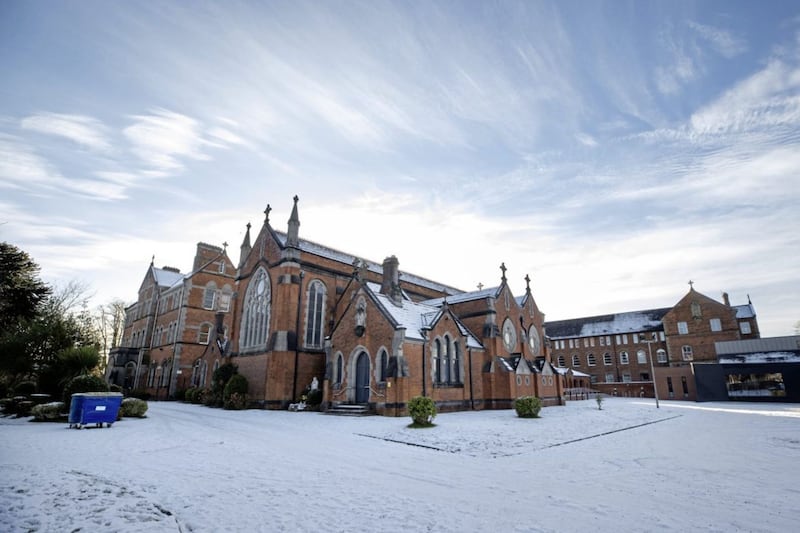Catholic primate Archbishop Eamon Martin has said he feels "embarrassed and guilty" over the Church's role in stigmatising unmarried pregnant women and treating them and their children "in such a cold and uncaring manner".
The Archbishop asked for forgiveness from survivors after a long-awaited report, published on Tuesday, revealed that more than 10,000 women and children, including rape and incest victims and a girl as young as 12, were sent to mother and baby homes in Northern Ireland.
The report looked at 14 institutions, including mother and baby homes linked to the Catholic and Protestant churches, Magdalene laundries, a Salvation army home, and homes run by health and social services and charities.
The number of women sent to the homes could be much higher because records are incomplete.
[ READ MORE: Robin Swann apologises to mother and baby home survivorsOpens in new window ]
Archbishop Martin said he was "truly sorry" - a sentiment echoed by the Anglican and Presbyterian churches in Ireland.
"How did we so obscure the love and mercy and compassion of Christ which is at the very heart of the Gospel? Shame on us," the Catholic primate said.
First Minister Arlene Foster told the BBC that any historic sexual crimes should be "looked at further".
"I think there is a need to get to the bottom of some of those cases because there may well be criminal acts that weren't investigated at that particular point of time, again because of society of that time," she said.
The Royal College of Midwives last night said it was appalled that some midwives showed a lack of compassion towards women sent to mother and baby homes.
In a statement the RCM said it regretted that many midwives were asked to 'toe the line' and that many did so.

The Good Shepherd Sisters, which ran mother and baby homes in Belfast and Newry and laundries in Derry, Belfast and Newry, said the report "reflects a time in our history when women did not receive the support they needed and deserved from family, society or the state".
"We provided services for women when no other option seemed to be available to them," the order said in a statement.
It added: "We deeply regret that we could not and did not always meet the multifaceted needs of these women."
Church of Ireland primate, Archbishop John McDowell said unmarried women and children "deserved much better".
"I acknowledge with shame that members of the Church of Ireland stigmatised women and children in a way which was very far removed from Christian principles and which resulted in an unloving, cold and judgmental attitude towards pregnant women who deserved better," he said.
Presbyterian moderator Dr David Bruce said: "We deeply regret and unreservedly apologise for the damaging effects of institutional care, in which the Presbyterian Church in Ireland, or its members played a part."
He said the church needed to reflect on the report "and our own association with, for example, what became the Edgar Home in Belfast, which closed some 93 years ago".
Many survivors whose mothers were sent to the homes have said they have experienced huge difficulties in trying to obtain basic records.
The Catholic Bishop of Derry, Donal McKeown, called for all records to be released.
"If anyone is trying to hide records or destroy records, that is a crime. Of course there is no reason why records should be withheld because people want to know who they are," he told the BBC.
Dr McKeown said he was not aware of "what was going on" in mother and baby homes.
"I was ordained a priest in the late 1970s but I certainly would have had no contact with any of those institutions which were winding down at that stage," he said.
"I was involved as a school teacher up until 2001, and that was the world I was working in at that stage, I simply would not have been aware of what was happening in the institutions or about concerns about what was happening in those institutions."








